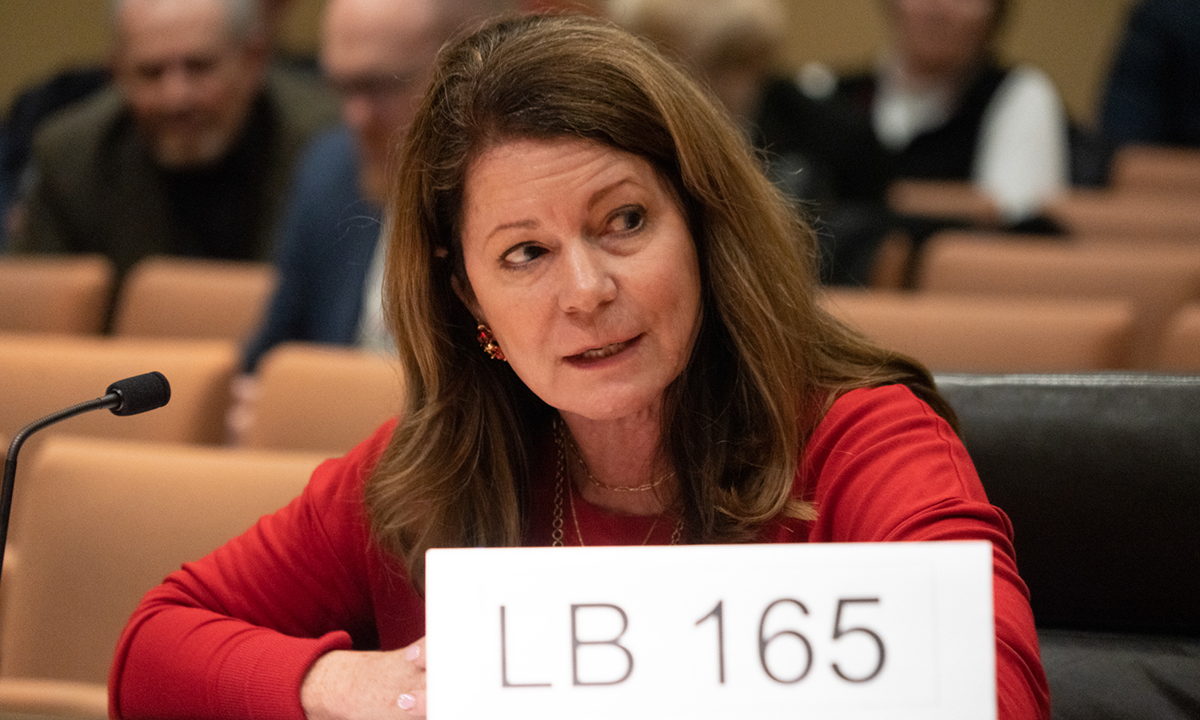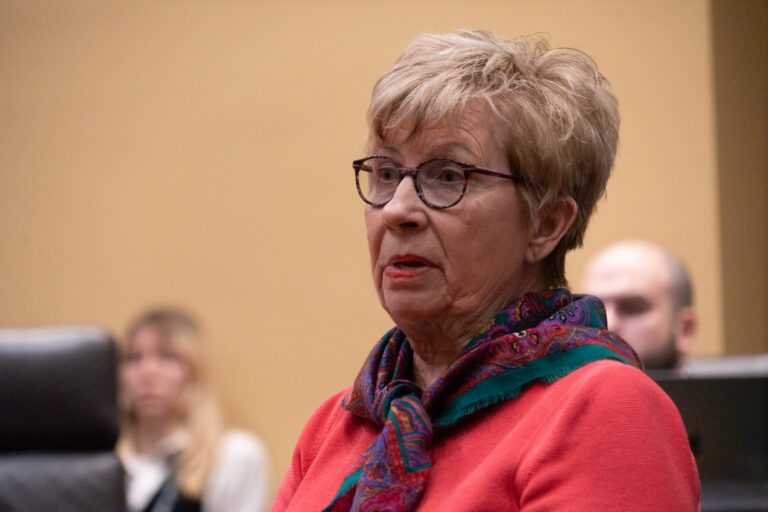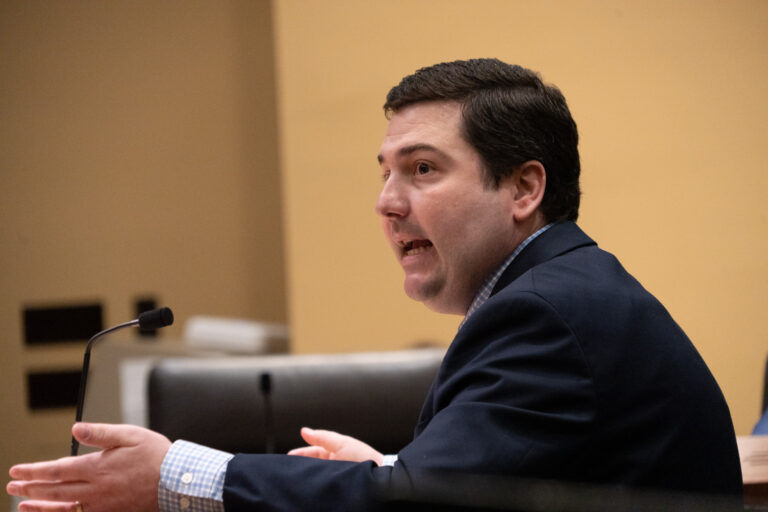Nebraska Lawmaker Proposes Expanding NEST 529 Plans to K-12 Private Education
Introducer calls bill a ‘common sense request’ that would match federal standard

Get stories like this delivered straight to your inbox. Sign up for The 74 Newsletter
LINCOLN — State Sen. Suzanne Geist of Lincoln said she realized last year she could not use an educational savings plan to support her grandchildren’s private K-12 tuition costs.
Congress approved an expansion in 2018 for NEST 529 plans under the College Savings Plan Program, but Nebraska is one of 10 states that lag in allowing the plans to also apply to K-12 private education.
Legislative Bill 165, proposed by Geist, would adopt the federal standard and allow Nebraskans to receive tax deductions for their investments, which is allowed for higher education in the state.
“This is such a common sense request to ask our state to conform with the federal guidelines so grandparents like me can help their kids who cannot afford the choice that they want to make for their school to be able to make that choice,” Geist said.
Opponents said the bill would incentivize private education and families who send their kids to private schools, without support for private schools.
There is a limit of $10,000 per beneficiary per taxable year.
Geist added that because families would invest their private dollars, the bill would not impact public school funding.
Nebraskans can create 529 plans in states where the change is allowed if they want the investment for K-12 schools.
However, Nebraskans could not capitalize on other states’ tax deductions.
Preventing a ‘slip through the cracks’
Heather Schmidt, whose daughter has dyslexia, said she enrolled her child in a private school so she would receive additional support.
But Schmidt and her husband had to pay the out-of-pocket costs without additional support or tax benefits.
“Any extra savings for our future or our children’s future education is put on hold,” Schmidt told the Revenue Committee on Thursday. “Because nothing is more important than making sure our children are educated every step of the way. We won’t let any of them slip through the cracks.”
Elizabeth Davids, an educator, said K-12 education is essential because it’s the point where children form their “primary worldviews” and where they establish a foundation.
Davids said a child should go where they can be successful, and if they do not end up going to college, a 529 plan could be “worthless.”
‘Pass-through entity’
Connie Knoche, education policy director for the OpenSky Policy Institute, said the bill would create a new tax benefit and subsidize private K-12 plans.
“LB 165 will turn NEST into a pass-through entity so that families with children in private school can and will use these accounts to receive an immediate tax deduction,” Knoche said.
Dunixi Guereca, executive director for Stand For Schools, which advocates for public schools and public school funding, said the bill could exclusively benefit already wealthy families.
Geist told the committee there are better ways to “make a buck” than investing in 529 plans for the tax deduction.

Tonack said there could be costs for families attending public schools, too, such as for industrial or performing arts.
She added that 529 accounts do extend to college apprenticeships or student loan debt repayments. She encouraged the committee to also extend expansion to families of K-12 students.
“It should make the pot grow just a little bit,” Tonack said.
Geist said she is working on an amendment that would conform to federal language related to allowing the 529 expansion to apply to public schools.
When asked, Tonack said that would make the NSEA neutral on Geist’s bill; Guereca said Stand For Schools would still be opposed.
‘Very skeptical’ of revenue decrease
A fiscal note from the Nebraska Department of Revenue through the next four fiscal years estimates the bill could lead to revenue decreases:
FY 2023-24: $2,539,000FY 2024-25: $5,669,000FY 2025-26: $7,921,000FY 2026-27: $7,829,000

State Treasurer John Murante said, however, he’s “very skeptical” about the estimates.
They assume that 50% of all eligible Nebraska families would have a 529 account next year and that the program would grow in future years.
Murante said such revenue decreases have not occurred in the states that adopted the federal standard and contended the department’s estimates were overstated.
Jay Steinacher, who oversees the 529 savings plans offered through Union Bank and Trust, said Nebraska has more than 300,000 accounts, which total more than $6 billion.
That places Nebraska 18th in the country for total assets, Steinacher said, even though Nebraska is 37th in population.
He said this can be attributed to a strong investment lineup, low costs and a competitive plan structure, but he said momentum slows when there is a limitation on how accounts may be used in the state.
“If they’ve been saving for their kids’ education, and they want to use their own money to pay for K-12 tuition, from our point of view, that’s their business,” Murante said.
Nebraska Examiner is part of States Newsroom, a network of news bureaus supported by grants and a coalition of donors as a 501c(3) public charity. Nebraska Examiner maintains editorial independence. Contact Editor Cate Folsom for questions: info@nebraskaexaminer.com. Follow Nebraska Examiner on Facebook and Twitter.
Get stories like these delivered straight to your inbox. Sign up for The 74 Newsletter

;)